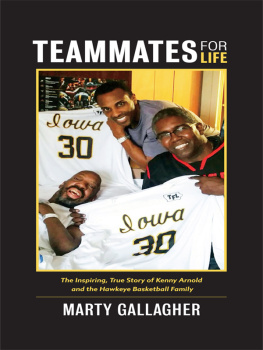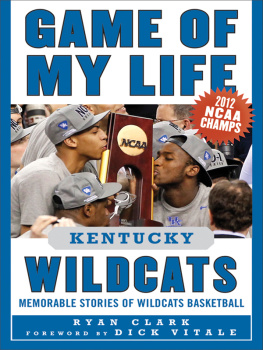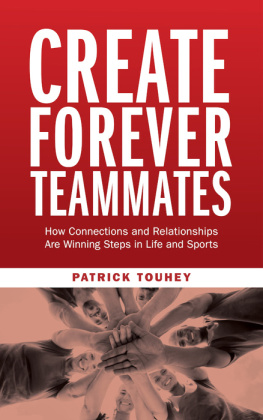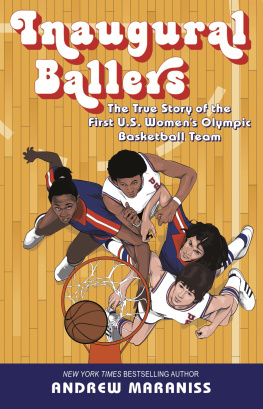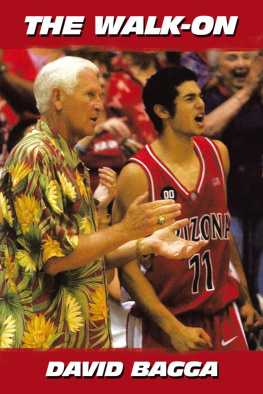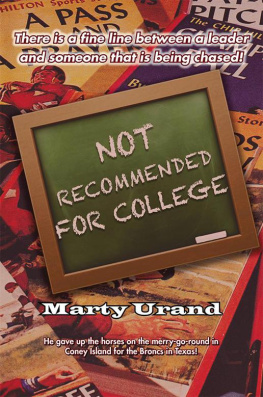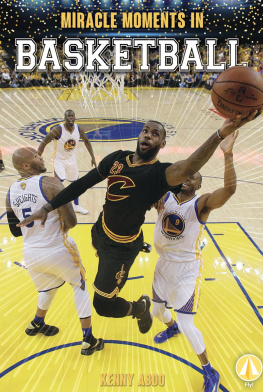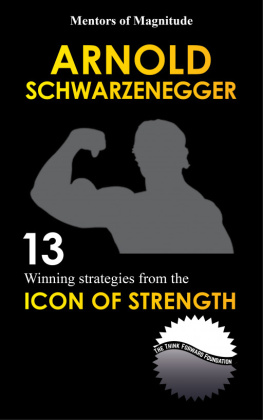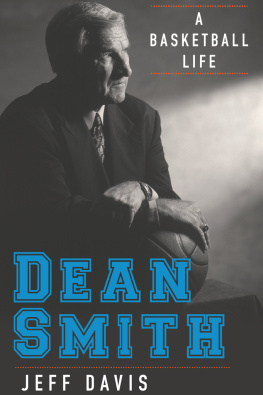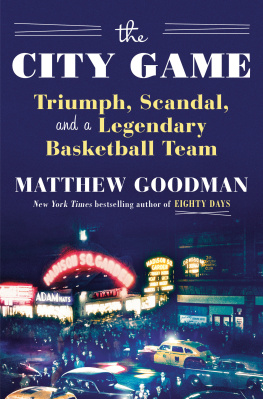2019 Marty Gallagher All rights reserved. No part of this publication may be reproduced, distributed, or transmitted in any form or by any means, including photocopying, recording, or other electronic or mechanical methods, without the prior written permission of the publisher, except in the case of brief quotations embodied in critical reviews and certain other noncommercial uses permitted by copyright law. ISBN 978-1-54396-806-4
eISBN 978-1-5439757-0-3
DEDICATION
I have been blessed to be surrounded by wonderful people my entire life. People I could always rely upon for friendship, advice, laughter and strength. My siblings Maggie, Dan, Joe, Tim, Katie, Ed and Jerry are seven of the greatest people I will ever meet. They have been supportive of everything that I have ever attemptedand they have inspired me by the way they live their lives.
But I would like to dedicate this book to my dad, Don, and my wife, Emily.
I learned to love sports by watching my dad and seeing how passionate he was about following his favorite teams. Whether it was the local high school team, the Iowa Hawkeyes, Chicago Cubs, Chicago Bearsor even a seventh-grade team if he had a child playing, Dad would always react enthusiastically to any successes. And if things didnt go well, he wouldnt hold back much then, either. His heart was on his sleeve for everyone to see and hear. Referees might have found him to be a bit too spirited at times through the years, but thats probably a story for another day. Nobody enjoys watching sports more than my dad.
My dad has also always been a person to get things done. My parents raised eight children, attended our games and events, instilled a strong work ethic, supported us every step of the wayand still had time to spend with each other and maintain their sanity. Dad also always had a cause that he was working toward, whether it was keeping the local golf course afloat or supporting the local booster club. Somehow, he seemed to always be working toward a goal and I dont think I ever saw him fall short.
Someone full of wisdom once pointed out that adversity reveals a persons true character. I think theres a lot of truth to that. From the time my mother was diagnosed with breast cancer in the spring of 2005 until she passed away in January of 2009, my dad was an absolute rock. His love for her was evident when I was growing up, but during those years she was sick, he did everything he could do for her. My dad has always been outgoing and enjoys conversationhes never met a stranger. But when Mom was sick, Dad let his actions do the talking. He provided her with the support she needed and the dignity she deserved. In the end, they were holding hands when she drew her last breath.
For a thousand reasons, my dad is my hero.
My wife Emily is the most beautiful person I will ever know. She is gorgeous, intelligent, funny and has a magnificent smile, but she also has the kindest heart I have ever witnessed. I am continually amazed at how she sees the best in people and her empathy has no limits. You cannot spend any time with her without becoming a better person. Our five children are incredibly lucky to have such a selfless role model.
When I decided to write this book, Emily knew that it would mean I would need to spend several hours of family time in my office away from her and the kids in order to complete this project. She couldnt have been more supportive of me taking the time necessary to writeand she also served as my main advisor.
I spent the first couple of decades of my life growing up, then it took a little more time to figure out what I wanted to do for a living. But there was something missing. Then, I met Emily and ever since that day, Ive been happy.
For a thousand reasons, Emily is my best friend and my inspiration.
Thank you, Dad and Emily, for all you doand for the examples youve both set for our family. You are the best. I love you.
Contents
INTRODUCTION
The following is a true story that Ive told bits and pieces of several times in the past year or two. Frequently, the response is something like, That would make a good booksomeone should write about that.
I agree. I think its a great story.
As a basketball fan who grew up in Iowa in the 1980s, this is a subject that is close to my heart. But ultimately, this is not a basketball story.
This is an uplifting story about lasting friendships, and what we are willing to do for those we love.
Fighting an illness like cancer takes courage, determination and strength. It is not something a person should ever have to go through alone. Whether that person has a support system of family, friends or a combination, this group of people could easily be referred to as teammates.
My hope is that this story might inspire someone to do a little extra for a person in their life who needs some support. Maybe its simply stopping by to say helloor maybe its something that takes additional effort or a more significant commitment. The main thing is to let that person know he or she is not alone.
Become a part of someones teammates for life and you can make an enormous difference. It is an opportunity that you are fortunate to haveand it is an exercise that you will never regret.
CHAPTER 1
The Long Walk to McKale
There are specific moments in time that have a dramatic effect on a persons life. It is easy to look back later and see how life was markedly different before that momentas well as after.
That instance could be something subtle, like a decision to reach out with a kind word or gesture that lifts a person in need, causing a ripple effect that touches many.
Other times, a person knows with 100 percent certainty, right then and there, that this hour on this day will make all the difference. Like a grown man carrying another grown man over his shoulder under the heat of the Arizona sun, trying to find help for his ailing friend.
Monday, February 28, 2005 was one of those days.
A crowded parking lot near the McKale Center at the University of Arizona was nothing new in 2005. The Wildcats led the Pac-10 Conference in attendance at mens basketball games for the previous two decades as Coach Lute Olson had built one of the nations top programs after his arrival in Tucson in the spring of 1983.
Coach Olson had achieved similar success in his prior job as the head mens basketball coach at the University of Iowa, where he worked from 1974-83, leaving as the Hawkeyes all-time leader in victories.
At noon on this day Monday, February 28 a bright blue sky and sunshine overlook the parking lot as a navy blue sedan weaves around the corners, trying to locate a place to park. The pair of 47-year-old men in the car are two of Coach Olsons former players at Iowa, Mike Tree Henry and Kenny Arnold.
After finding a parking spot, the driver emerges from the car. Henry is an imposing figure six-foot-nine and 285 pounds wearing a white polo shirt and khaki pants. He walks around to the other side of the vehicle and opens the passenger door.
The lone passenger in the car is Arnold, who was diagnosed with a brain tumor in 1984, underwent brain surgery shortly thereafter and had suffered several strokes in the two decades since. His body has been ravaged, leaving him exhausted. Arnold, who measures six-foot-two, weighs only 135 pounds at the time, 65 pounds less than his weight as a college athlete. They fear that Arnolds cancer has returned. At this point, he is too weak to walk.

